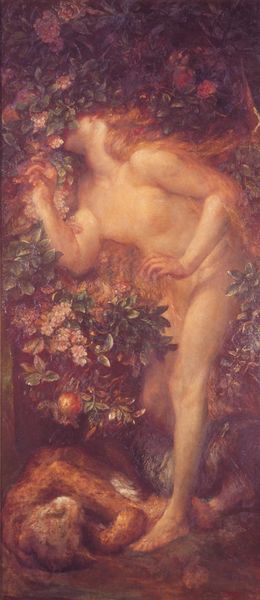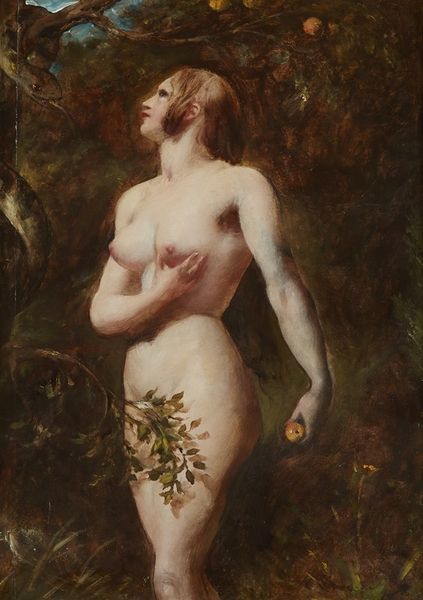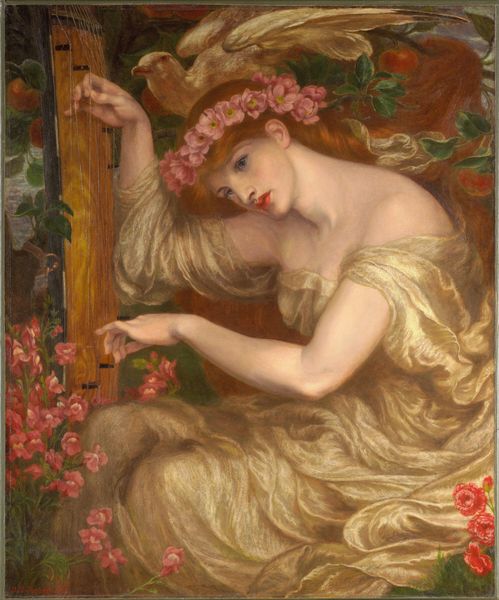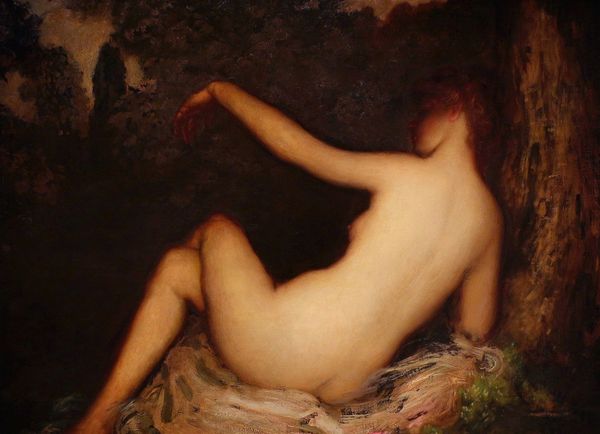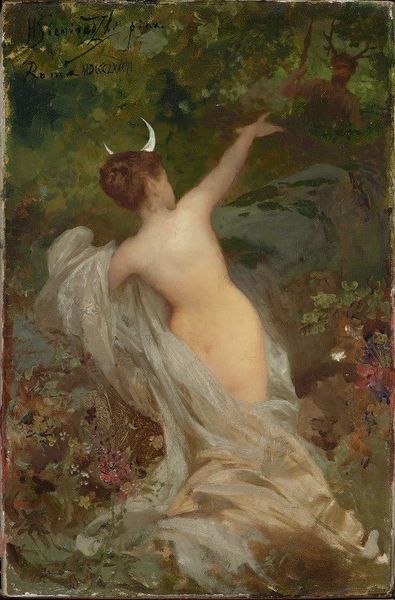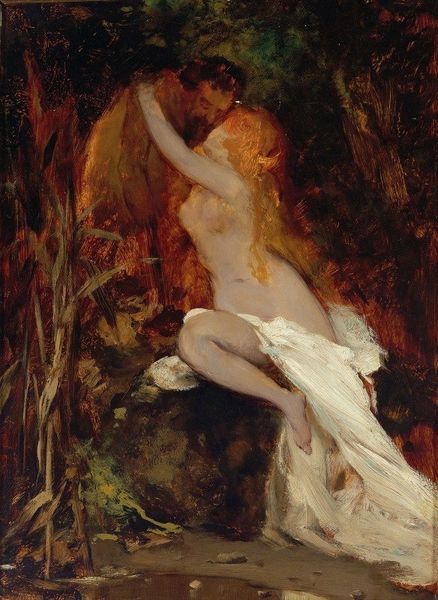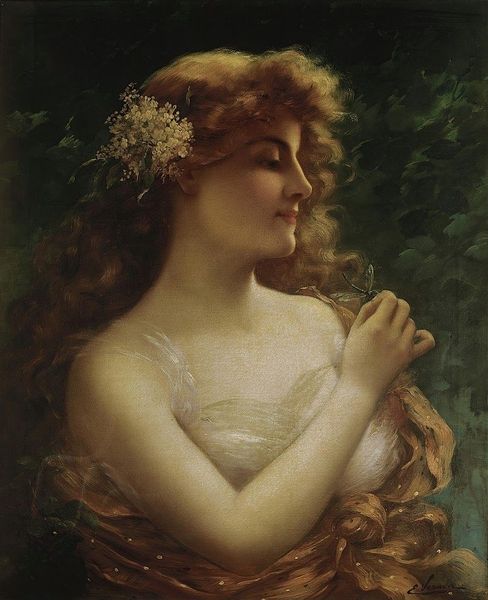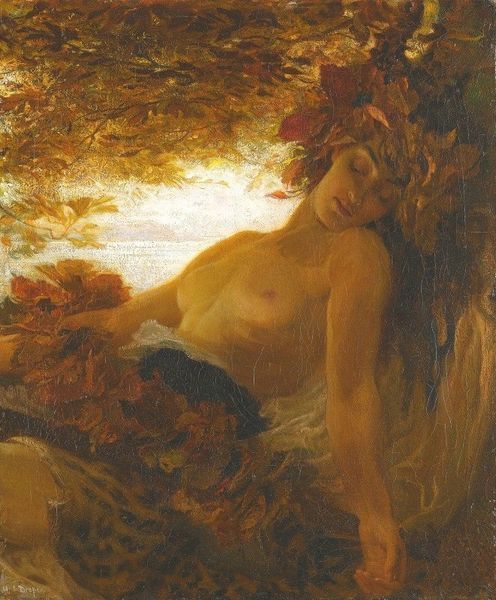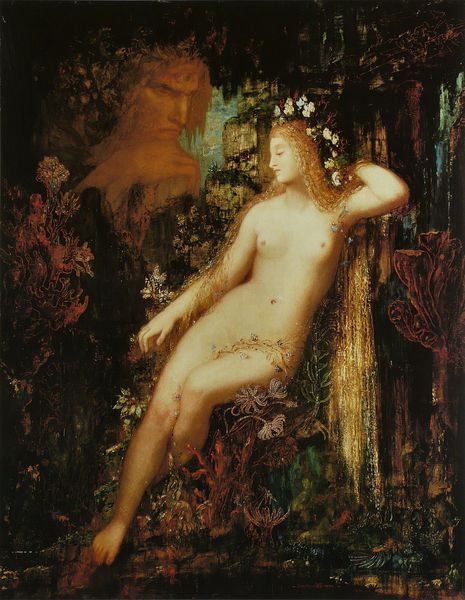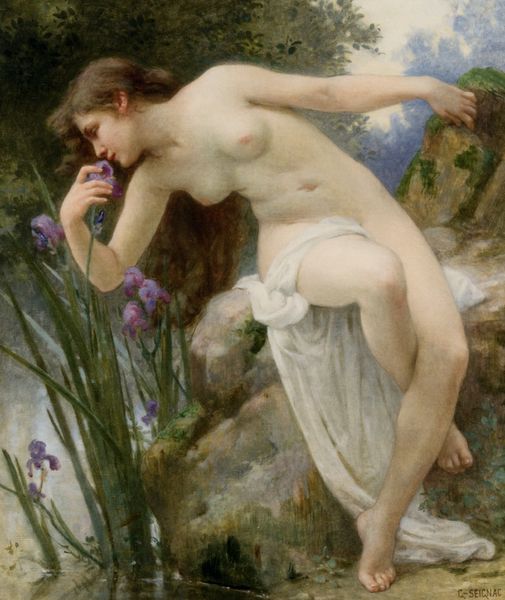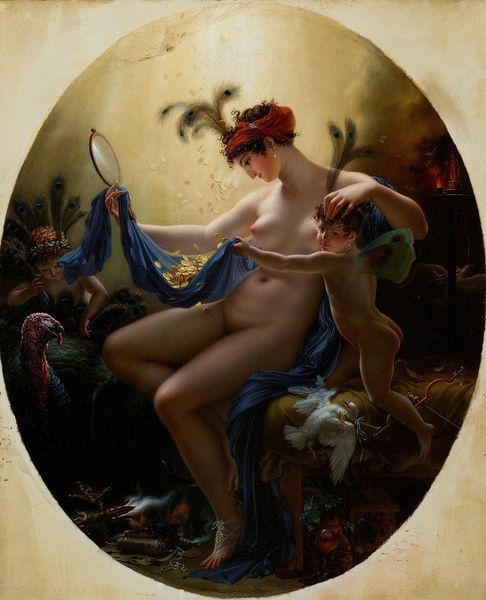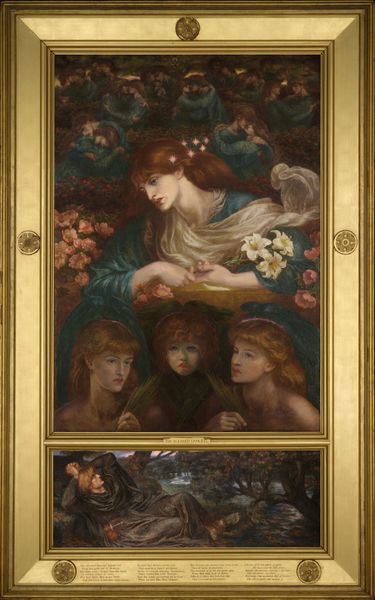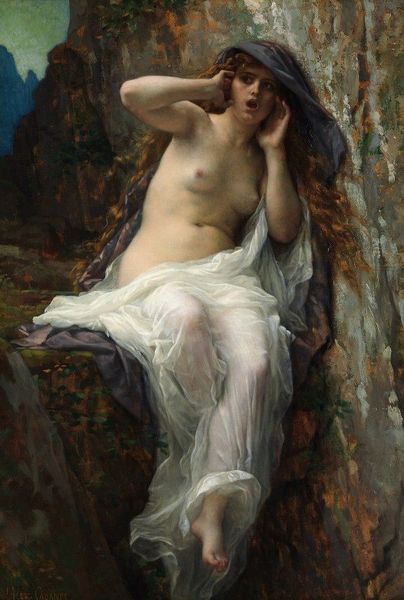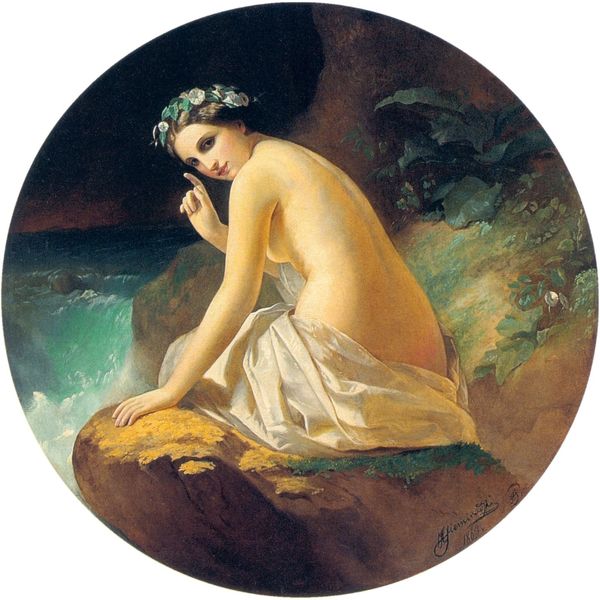
painting, oil-paint
#
portrait
#
painting
#
oil-paint
#
landscape
#
figuration
#
oil painting
#
history-painting
#
academic-art
#
nude
#
portrait art
#
realism
Copyright: Public domain
Curator: The piece before us, painted in 1880 by Johann Koler, is titled "Eve with a Pomegranate." The medium, as you can see, is oil on canvas. Editor: It’s quite lush, almost overwhelmingly so. There’s a sense of shadowed depth, broken only by her pale skin and the redness of the fruit she’s offering. It’s very…theatrical. Curator: Indeed. The artist’s choices, in terms of color and composition, create a clear focal point: Eve and the pomegranate. The darkness surrounding her directs our eye immediately to her outstretched hand and gaze. Notice, too, the circular composition adding to the sensation of infinite depth, mirroring the infinite implications of the story it depicts. Editor: The pomegranate, of course, is more than just fruit. From a symbolic standpoint, it drips with meaning, doesn’t it? A long association with fertility, and in some cultures, immortality… here, in the context of Eve, it’s an obvious nod to temptation, knowledge, the loss of innocence. Curator: Precisely. One might even say Koler’s manipulation of light and shadow emphasizes the dual nature of the fruit itself, both tempting and promising knowledge but also casting Eve’s form in contrasting darkness. Consider the implicit duality: knowledge and ignorance, light and shadow. Editor: There is also something interesting about her face… Koler makes her into more than just a figure of sin; she has this knowing glance, challenging the viewer as if she's in control of her choices. Her figure isn’t ashamed or withdrawn, as Renaissance portrayals would render her. Instead, it almost seems Koler is re-writing Eve as empowered by her own decisions. Curator: Interesting. Though the formal elements suggest an academic adherence to accepted painterly modes and historical tropes, as you noted, Eve’s facial expression lends a layer of ambiguity that complicates the painting's simple delivery. The slight shift toward a self-assured representation of the biblical matriarch suggests an implicit comment on societal perception and woman’s place in the moral equation. Editor: That tension is exactly what makes it so compelling. We see the echoes of the established visual language, but disrupted by a new idea taking root. It’s not just the beginning of human history she holds; perhaps she signifies something about a changing culture too. Curator: A subtle statement within a classical presentation. Looking closer has enriched our appreciation of this work by Koler.
Comments
No comments
Be the first to comment and join the conversation on the ultimate creative platform.
